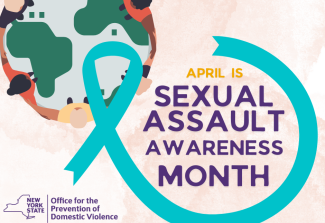SUNY Plattsburgh's Response to the Threat of Swine Flu Outbreak
The following statement was issued to the SUNY Plattsburgh community by President John Ettling on Monday, April 27, 2009:Many of us at SUNY Plattsburgh are concerned about the swine flu outbreak that is making the headlines. I wanted to take a moment to let you know that the college is taking proactive steps to ensure that we are prepared to respond if necessary.
Since the news of the outbreak, a group of key personnel from the college have met to review the latest information on the outbreak and our established response plans. It is reassuring to know that campus planning for an influenza outbreak or epidemic has been underway for many months.
Here are some facts about the outbreak in relation to our campus:
- The Health Center reports that they have not come across any suspected cases of swine flu among the student population.
- Students who went to Mexico for spring break are most likely not at risk since they would have already demonstrated symptoms; the seven-day incubation period for the flu has passed.
- No students from SUNY Plattsburgh are studying abroad in Mexico this semester.
- We have students studying abroad this semester in other countries. We are tracking reports of outbreaks in their host countries and will communicate directly with them as necessary.
We are also asking that members of our campus community help in our response to any potential threat.
First, we ask that students, faculty and staff respond appropriately to the news of the outbreak. As of this afternoon, 40 cases have been confirmed in the United States, and officials are stressing the need to be alert but calm. Currently, no deaths have been reported in the U.S. as a result of the swine flu, and patients are responding well to the use of antiviral medication, such as Tamiflu.
Second, members of our campus community should practice good personal hygiene which includes:
- Frequent hand washing with soap and warm water.
- Covering the mouth and nose when coughing or sneezing.
- Avoiding close contact with people who are sick, and avoiding touching the eyes, nose or mouth.
Students are encouraged to visit the Health Center if they have symptoms which include high fever, cough and sore throat. Also, if students are experiencing symptoms and have recently traveled to one of the affected areas or have reason to believe they have been in contact with someone with a confirmed case of swine flu, they should visit the Health Center as soon as possible. Faculty and staff who are experiencing flu-like symptoms are encouraged to stay home from work and contact their primary care physician.
Finally, students, faculty and staff can stay up to date on the latest developments of the outbreak by visiting the CDC Web site on Swine Flu at http://www.cdc.gov/swineflu. To keep up to date on SUNY Plattsburgh's response, visit http://www.plattsburgh.edu/emergency.
News
SUNY Plattsburgh, NCCC Announce New Admissions Initiative

SUNY Recognizes Two Plattsburgh Seniors for Excellence in Academics, Leadership

Sexual Assault Awareness Month Events Planned Throughout April
‘Day of Visibility’ Recognizes, Highlights Members of Transgender Community
SBE Teams with CVPH Medical Center to Train Management Personnel
